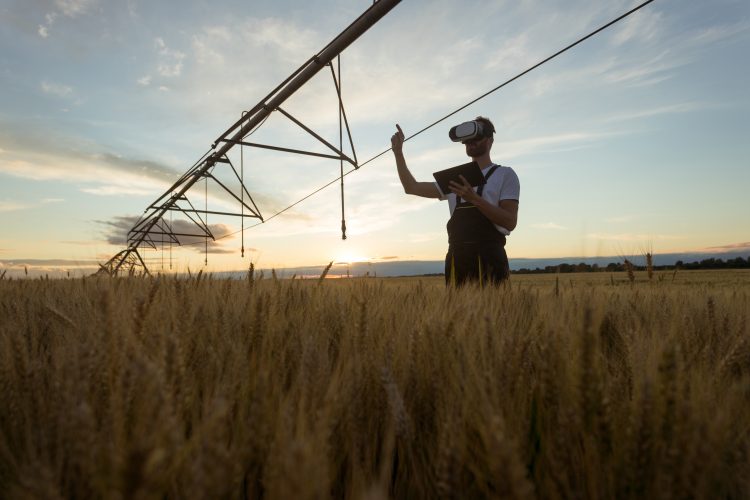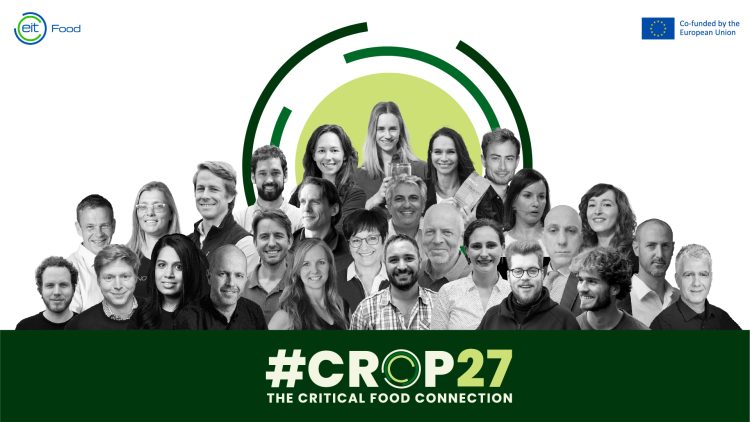#CROP27: Putting food innovation on the COP27 agenda
- Like
- Digg
- Del
- Tumblr
- VKontakte
- Buffer
- Love This
- Odnoklassniki
- Meneame
- Blogger
- Amazon
- Yahoo Mail
- Gmail
- AOL
- Newsvine
- HackerNews
- Evernote
- MySpace
- Mail.ru
- Viadeo
- Line
- Comments
- Yummly
- SMS
- Viber
- Telegram
- Subscribe
- Skype
- Facebook Messenger
- Kakao
- LiveJournal
- Yammer
- Edgar
- Fintel
- Mix
- Instapaper
- Copy Link
Posted: 11 November 2022 | Dr. Andy Zynga | No comments yet
Highlighting the importance of food systems transformation in the battle against climate change, Dr Andy Zynga discusses why food innovation is a crucial part of the COP27 agenda.


Adaptation and Agriculture Day at COP27 is on 12 November 2022 and is a chance to share and discuss the issues and solutions related to food systems, agriculture and resilience.
When it comes to food systems and adaptation, the challenge ahead is clear. We need to feed our growing population with healthy, nutritious food, but we must do so sustainably, fairly and efficiently. In order to meet this challenge, we urgently need to scale and support innovation so that resilient, future-proof and affordable solutions are embedded throughout the entire food system.
There is a perception that food systems – particularly agriculture and food production as the ‘face’ of food systems – only have negative effects on the environment rather than offering opportunities for positive change. We all depend on food to survive and, as we look to secure our food system for future generations, it is crucial that any discussions on achieving net-zero and addressing climate change include food right at the centre.
As the world’s largest and most dynamic agri-food innovation ecosystem, EIT Food believes that food systems and food innovation should be an integral part of all climate dialogues, and we are committed to highlighting the positive role transformation of food systems can play on our climate.
In response to climate change, many actors across the food system – including farmers, SMEs and retailers – have already been creating new solutions in order to keep their livelihoods and production afloat. A combination of traditional, nature-based solutions as well as novel food production methods are currently being re-introduced, developed and scaled. These are driving positive impact across Europe and the world however, these much-needed solutions are not receiving the attention they deserve.
Spotlighting food innovators
#CROP27: The Critical Food Connection was launched 27 days ahead of COP27 to showcase the diversity of food innovation and the importance of connecting people and ideas to create holistic climate adaptation and mitigation solutions. Food production has become so much more than cultivating the land, and the diversity of these production methods must be recognised as we look ahead to a future-proof food system.


#CROP27: The Critical Food Connection showcases the diversity of food innovation and the people behind the solutions
There is no easy fix to the challenges we face, but many incredible innovations already exist. However, these products, projects and approaches often lack the awareness and investment they need to scale up.
By spotlighting a food innovator every day in the 27 days leading up to COP27, we set out to change the narrative from challenges to solutions. Our mission was to demonstrate how food innovation can contribute not only to food systems transformation, but to wider environmental and social change.
From microalgae being produced as a protein alternative using clean geothermal energy in Iceland, to biostimulants ‘priming’ crops in Belgium against extreme weather changes such as heat waves and drought, the innovations included in the campaign are diverse but wholly connected to one another.
Our food system is a complex network of players, processes and partnerships, and by amplifying these connections, we can achieve greater impact.
One example of a #CROP27 innovator that we have profiled is Andrew Diprose of RootWave. The UK based start-up kills weeds using electricity, enabling better weed control at a lower cost compared to herbicides, all whilst protecting soil health, water and biodiversity. Reducing herbicides and chemical inputs also helps to increase the capacity of the soil to sequester carbon, reducing the amount of carbon entering the atmosphere as CO2.
On the other side of the European continent is Magdalena Kozłowska, the CEO and Co-Founder of Poland-based NapiFeryn BioTech. This start-up is developing a technology to obtain food grade proteins from oilseeds, including the ‘waste’ material left over after pressing oil from rapeseed. The farming of rapeseed has less environmental impact than conventional meat production and rapeseed is considered a healthy alternative to meat due to its protein content. By creating value from this by-product, NapiFeryn BioTech is contributing to the circular economy while increasing nutritional opportunities for consumers.
There are so many innovative solutions already driving positive change across the world. We must now rally together to ensure these solutions and people have the visibility, investment and support they need to scale, fast. The clock is ticking for irreversible climate catastrophe, and I believe that innovation throughout our food system will be the driving force in creating a sustainable, resilient world for all of us.
To read more about the #CROP27 innovators, visit the EIT Food blog.
About the author
Andy Zynga is the CEO of EIT Food, Europe’s leading food innovation initiative which aims to create a sustainable and future-proof food sector. Based in Leuven, he has international experience in food systems, innovation, telecoms and technology services and a proven track record in building profitable businesses in the USA and Europe.
Related topics
Environment, Food Security, New product development (NPD), Product Development, Research & development, Supply chain, Technology & Innovation, Trade & Economy, World Food









